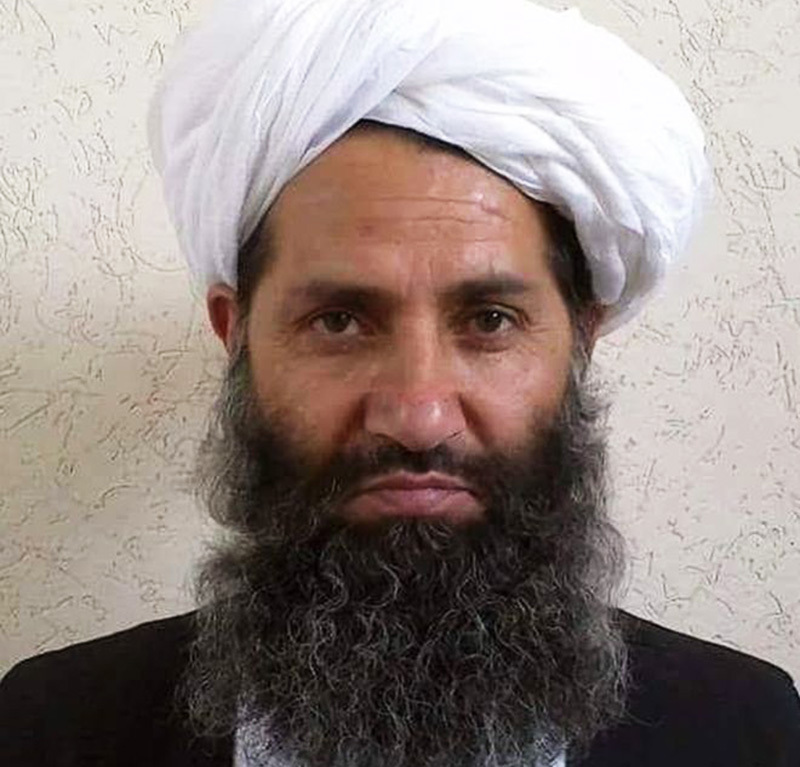Afghan Taliban reject peace talks, vow to continue fighting

KABUL: The Afghan Taliban under their new leader, Mullah Haibatullah Akhundzada, on Wednesday rejected peace talks as a viable solution to bringing the Afghan insurgency to an end, and have stated that fighting will continue.
In an audio message released in Pushto, circulated by Taliban commanders, Haibatullah stated the "Taliban will never bow their heads and will not agree to peace talks."
Afghan Taliban's new chief added that "people thought we will lay down our arms after Mullah Mansour's death, but we will continue fighting till the end."
New Afghan Taliban chief
A spokesman of the Afghan Taliban on Wednesday confirmed the death of the group's chief Mullah Akhtar Mansour in a US drone strike.
In a statement sent to media Wednesday, the insurgent group said its new leader is Mullah Haibatullah Akhundzada, a former head of the Taliban's judiciary and one of two Mansour's deputies.
It said he was chosen at a meeting of Taliban leaders.

Sirajuddin Haqqani, head of a network blamed for many high-profile bombs attacks in Kabul in recent years, and Mullah Mohammad Yaqoob, son of former leader Mullah Mohammad Omar, will serve as deputies, Zabihullah Mujahid, the Taliban's main spokesman, said in the statement.
Both of the new deputies had earlier been thought to be the main contenders for the top job.
Mansour was reported killed in Pakistan on Saturday when his vehicle was struck by a US drone, believed to be the first time a Taliban leader was killed in such a way inside Pakistani territory.
After Mullah Mansour
The US and Afghan governments said Mansour had been an obstacle to a peace process that had ground to a halt when he refused to participate in peace talks earlier this year. Instead, he intensified the war in Afghanistan, now in its 15th year.
Examine: Mansour was not against talks, says Nisar
Mansour had led the Taliban since last summer, when the death of the movement's founder, the one-eyed Mullah Mohammad Omar became public. Mansour ran the movement in Mullah Omar's name for more than two years.
The group saw a resurgence under the firebrand supremo with striking military victories, helping to cement his authority by burnishing his credentials as a commander.
They briefly captured the strategic northern city of Kunduz in September in their most spectacular victory in 14 years. Southern opium-rich Helmand province is almost entirely under insurgent control.
The revelation of Mullah Omar's death and Mansour's deception led to widespread mistrust, with some senior leaders leaving the group to set up their own factions.
Senior Taliban figures have said his death could strengthen the movement, as he was a divisive figure. The identity of his successor was expected to be an indication of the direction the insurgency would take, either toward peace or continued war.
Akhundzada is a religious scholar known for issuing public statements justifying the existence of the militant Taliban, their war against the Afghan government and the presence of foreign troops in Afghanistan.
His views are regarded as hawkish, and he could be expected to continue in the aggressive footsteps of Mansour.
The Taliban statement called on all Muslims to mourn Mansour for three days. It also attempted to calm any qualms among the rank and file by calling for unity and obedience to the new leader.


















































